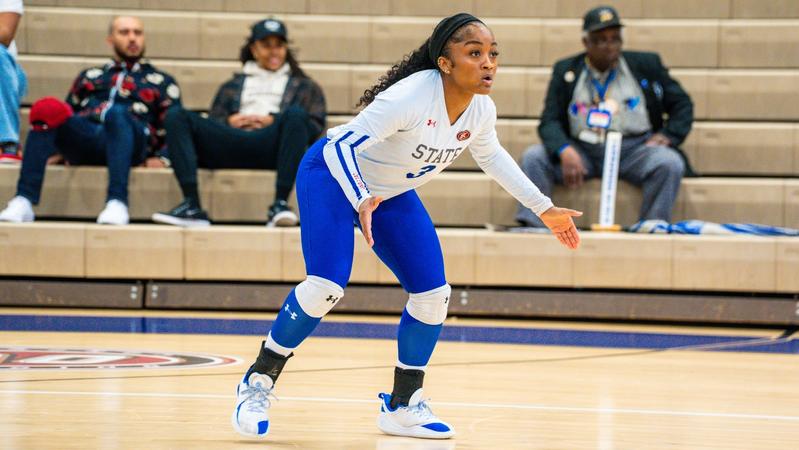Rec Sports
A Day With #WeRideTogether | Psychology Today
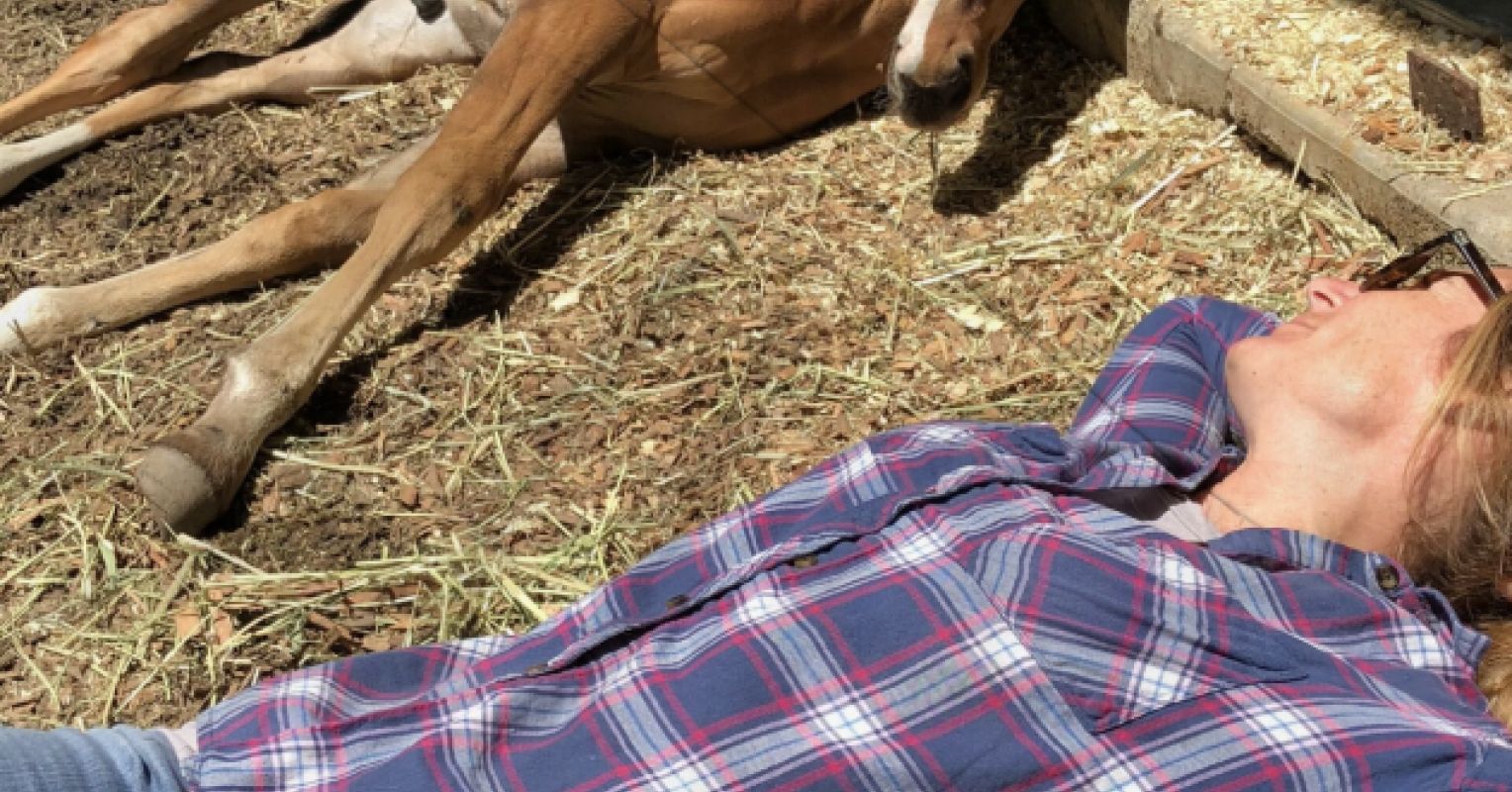
Recently, I had the privilege of spending a day with the remarkable team behind #WeRideTogether, a movement working to end sexual misconduct in sport.
#WeRideTogether is more than a nonprofit; it’s a call to action. Born to confront the pervasive issue of sexual abuse in youth and amateur sports, the organization is reshaping what safety, accountability, and healing can look like in athletic spaces. Their mission is clear: Every athlete deserves to train, compete, and thrive in an environment free from abuse. Through survivor-centered storytelling, education, and stigma-smashing advocacy, they’re creating the cultural shift our sports systems so desperately need.
What unfolded that day was not just a conversation; it was a reckoning. A reclamation. And, most importantly, a reminder that change isn’t just possible: It’s already in motion.
Harrowing Statistics
More than half of all athletes experience some form of abuse during their lifetime, most often at the hands of someone they know, such as a coach, trainer, or teammate (Hartill et al., 2021). Rates of sexual violence in sport alone have been estimated as high as 14 percent (Lang et al., 2023).
And yet, we still lack a widespread, coordinated investment in preventing sexual misconduct in sport. These numbers are not just statistics, they’re a call to action. They underscore the urgent need to continue confronting abuse in athletic spaces with honesty, accountability, and sustained commitment to cultural change.
A Survivor’s Narrative
Olympic swimmer Margaret Hoelzer courageously shared her story of early childhood sexual abuse and how its impact echoed throughout her athletic career. She spoke of the armor she built: an unrelenting drive to be strong, flawless, and victorious. But no podium finish could replace the parts of her that were taken too soon. “I could cry into my goggles,” she once said, “and no one would notice.”
Today, strength means something different. For Margaret, it’s about transforming pain into purpose. It’s about speaking the unspeakable so that others feel less alone, and so the silence that shields abuse begins to crack.
Intersectionality and Power Imbalances
Dr. Tyler Miles, early in her career as a clinical and sport psychologist, spoke with a clarity and conviction that many never reach, even after decades in the field. She tackled the issue of emotional abuse and child exploitation in sport through a powerful lens of intersectionality, reminding us that certain identities are more vulnerable to harm and less likely to be believed if they come forward. She explained how power imbalances are woven into the very fabric of sport culture. Passion like hers doesn’t just inspire, it catalyzes change.
Trauma-Informed Sport Environments
I spoke about how abuse can echo across a lifetime, often in ways survivors don’t fully recognize or have language for until much later. There is no “perfect” victim; trauma takes many forms. It can surface as behavioral challenges, emotional dysregulation, or nonadherence to rules, frequently misread or dismissed.
In sport, the very qualities we celebrate—intense emotional bonds, high access to authority figures, and close physical proximity—can become dangerous when safeguards are absent. Young athletes are regularly placed in situations we’d flag as inappropriate in any other setting: one-on-one time with unfamiliar adults, unsupervised overnight trips, fast-tracked intimacy without earned trust.
Success should never come at the cost of safety.
The Team That Made It Happen
Carrie Kehring, president of #WeRideTogether, spoke with the raw power of lived experience. Her daughter’s story of sexual abuse—and the systemic failures that followed—fuel Carrie’s fight for justice. She knows all too well the betrayals survivors endure: from sport governing bodies to law enforcement to the communities that should have protected them. Injustices that would break most people. But not her. “And that’s why I’m going to change it,” she said. To that, I say: You already have.
Our host, Caroline Culbertson, held the space with grace, strength, and compassion, facilitating a conversation that was anything but easy. The women of #WeRideTogether—Michaela Callie, Kathryn McClain, Madison Smith, and Annelise Ware—brought fierce intellect, radical gentleness, and a shared commitment to truth-telling. Together, they created an atmosphere where even the hardest truths could be named without shame.
Emily Sheehan, an award-winning filmmaker and the day’s producer, and Caleb Hanson, the director who offered much-needed humor and groundedness, are sure to shape this into a story that demands to be seen and heard.
The #WeRideTogether Victim Experience series is set to launch in the coming months. Follow their work. Support their mission. This is how change takes root.
Real Change
So, what does real change look like?
- It looks like naming the truth: Perpetrators are solely responsible for sexual violence, regardless of their title, accolades, or reputation.
- It looks like sport communities rising to the challenge of creating trauma-informed environments, where everyone understands consent, can recognize grooming behaviors, and knows how to intervene and report safely.
- It looks like believing survivors first. Always. The investigations, the evidence, the procedures—they matter. But before any of that, we believe. Because the cost of disbelief can haunt a survivor for a lifetime.
- And to every survivor reading this: It’s never too late to speak your truth. It’s never too late to reclaim your story.
Rec Sports
Special Olympics Targets 600,000 Coaches by 2030 with Nike Partnership

Key Takeaways
- Special Olympics aims to grow its coaching roster from 250,000 to 600,000 globally by 2030, a 140% increase over six years
- The organization lost nearly half of its coaches during the COVID-19 pause in 2020, requiring substantial rebuilding efforts
- A three-year Nike partnership announced in July focuses on coaching certifications, translations, and curriculum development across global markets
- Nike plans to recruit 600 additional Unified sports volunteer coaches in Oregon, Berlin, Johannesburg, and Tokyo with emphasis on young women and girls
- Most Special Olympics coaches are volunteers with high retention rates, as many return after their initial involvement
Rebuilding After Major Pandemic Losses
Special Olympics faced significant challenges following the COVID-19 pandemic, losing approximately 50% of its coaching workforce during the 2020 pause in activities. Since resuming operations, the organization has rebuilt steadily with coaching rosters growing roughly 10% annually.
The current global total stands at 250,000 coaches. However, officials acknowledge that reaching 600,000 by 2030 represents an ambitious target that will require strategic partnership support and sustained recruitment efforts.
Nike Partnership Focuses on Coach Development
In July, Special Olympics announced a three-year partnership with Nike centered on coach identification and training. Financial terms of the agreement were not disclosed.
“Special Olympics places a lot of emphasis and importance on the role of the coach,” Special Olympics CEO David Evangelista said. “With Nike, we will be investing in making sure we have state-of-the-art coaching resources.”
The partnership will address coaching certifications and provide translations to support global expansion. Nike will also contribute to curriculum development to help coaches stay current with sport-specific training methods.
Geographic and Demographic Priorities
Nike’s recruitment efforts will target four specific markets: Oregon, Berlin, Johannesburg, and Tokyo. The company aims to recruit 600 additional Unified sports volunteer coaches in these regions.
The partnership includes a specific focus on expanding opportunities for young women and girls to participate in Unified sports programs. This demographic emphasis reflects broader industry efforts to increase female participation in youth athletics.
Building on a Longstanding Relationship
The partnership extends an existing collaboration between Nike and Special Olympics. Special Olympics Oregon has worked with Nike for nearly 20 years, including 16 years hosting the Special Olympics Oregon Youth Games at Nike World Headquarters.
More than 6,000 Nike employees have participated in Youth Games events, working with 7,600 athletes with intellectual disabilities. The volunteer retention rate remains high, with most coaches continuing their involvement after initial participation.
What This Means for Youth Sports Inclusion
The 600,000 coach target represents more than operational growth. It signals the organization’s commitment to expanding athletic opportunities for athletes with intellectual disabilities at a time when youth sports access remains a priority across multiple stakeholder groups.
The volunteer model presents both advantages and challenges. While high retention rates suggest strong program satisfaction, scaling to 600,000 coaches will require consistent outreach, training infrastructure, and partnership support across diverse international markets.
via: SBJ / Nike
YSBR provides this content on an “as is” basis without any warranties, express or implied. We do not assume responsibility for the accuracy, completeness, legality, reliability, or use of the information, including any images, videos, or licenses associated with this article. For any concerns, including copyright issues or complaints, please contact YSBR directly.
About Youth Sports Business Report
Youth Sports Business Report is the largest and most trusted source for youth sports industry news, insights, and analysis covering the $54 billion youth sports market. Trusted by over 50,000 followers including industry executives, investors, youth sports parents and sports business professionals, we are the premier destination for comprehensive youth sports business intelligence.
Our core mission: Make Youth Sports Better. As the leading authority in youth sports business reporting, we deliver unparalleled coverage of sports business trends, youth athletics, and emerging opportunities across the youth sports ecosystem.
Our expert editorial team provides authoritative, in-depth reporting on key youth sports industry verticals including:
- Sports sponsorship and institutional capital (Private Equity, Venture Capital)
- Youth Sports events and tournament management
- NIL (Name, Image, Likeness) developments and compliance
- Youth sports coaching and sports recruitment strategies
- Sports technology and data analytics innovation
- Youth sports facilities development and management
- Sports content creation and digital media monetization
Whether you’re a sports industry executive, institutional investor, youth sports parent, coach, or sports business enthusiast, Youth Sports Business Report is your most reliable source for the actionable sports business insights you need to stay ahead of youth athletics trends and make informed decisions in the rapidly evolving youth sports landscape.
Join our growing community of 50,000+ industry leaders who depend on our trusted youth sports business analysis to drive success in the youth sports industry.
Stay connected with the pulse of the youth sports business – where industry expertise meets actionable intelligence.
Sign up for the biggest newsletter in Youth Sports – Youth Sports HQ – The best youth sports newsletter in the industry
Follow us on LinkedIn
Follow Youth Sports Business Report Founder Cameron Korab on LinkedIn
Are you a brand looking to tap into the world’s most passionate fanbase… youth sports?
Introducing Play Up Partners, a leading youth sports marketing agency connecting brands with the power of youth sports. We specialize in youth sports sponsorships, partnerships, and activations that drive measurable results.
About Play Up Partners
Play Up Partners is a leading youth sports marketing agency connecting brands with the power of youth sports. We specialize in youth sports sponsorships, partnerships, and activations that drive measurable results.
Why Sponsor Youth Sports?
Youth sports represents one of the most engaged and passionate audiences in sports marketing. With over 70 million young athletes and their families participating annually, the youth sports industry offers brands unparalleled access to motivated communities with strong purchasing power and loyalty.
What Does Play Up Partners Do?
We’ve done the heavy lifting to untangle the complex youth sports landscape so our brand partners can engage with clarity, confidence, and impact. Our vetted network of accredited youth sports organizations (from local leagues to national tournaments and operators) allows us to create flexible, scalable programs that evolve with the market.
Our Approach
Every partnership we build is rooted in authenticity and value creation. We don’t just broker deals. We craft youth sports marketing strategies that:
- Deliver measurable ROI for brand partners
- Create meaningful experiences for athletes and families
- Elevate the youth sports ecosystem
Our Vision
We’re positioning youth sports as the most desirable and effective platform in sports marketing. Our mission is simple: MAKE YOUTH SPORTS BETTER for athletes, families, organizations, and brand partners.
Common Questions About Youth Sports Marketing
Where can I sponsor youth sports? How do I activate in youth sports? What is the ROI of youth sports marketing? How much does youth sports sponsorship cost?
We have answers. Reach out to info@playuppartners.com to learn how Play Up Partners can help your brand navigate the youth sports landscape.
Youth sports organizations: Interested in partnership opportunities? Reach out to learn about our accreditation process.

Rec Sports
St. Louis LGBTQ+ community rallies in support of athletes

ST. LOUIS — The LGBTQ+ community rallied at St. Louis City Hall Monday to support the rights of trans student athletes.
This comes as the Supreme Court will hear arguments over the issue Tuesday. Two transgender athletes from Idaho and West Virginia are appealing their lower court’s decision on restrictions over transgender athletes’ participation in girls’ and women’s sports.
The cases focus on the role of Title IX’s equal protection clause and how it should be interpreted when it comes to gender and sports, according to Jesse Jones, executive director of Lavender Youth Alliance and principal consultant with Jesse Jones Education and Consulting.
“Legal experts are advising that the ruling in these cases will also have far-reaching implications for trans youth, extending to things like use of bathrooms and pronouns at school,” they said.
Approximately 27 states, including Missouri, have laws or policies restricting transgender youth from participating in sports that align with their gender identity.
During Monday’s event, organization leaders spoke against laws that hinder and ban rights for the LGBTQ+ community and expressed support for the transgender athletes.
“It takes all of us coming together to support one another, and that none of these issues we see on the news are in silos,” Jones said.
“Whether these are laws being passed to attack immigrants, transgender people, Black and Brown folks, all of us need to come together as a community, as humans, to show that we all deserve love, respect and belonging.”
Rec Sports
Sign up for youth basketball shooting competition

The Knights of Columbus, St. Anne’s Council 10221, is sponsoring a youth basketball free-throw competition on Saturday, Jan. 17, at Shaw Gym, 75 South St., in Gorham.
The competition is open to boys and girls ages 9-14. Proof of age is required at sign-up. Registration is set for 2:30 p.m. with the competition at 3 p.m. Winners will advance to the state championship.
For more information, call Jim at 222-0744 or Ben, 436-0223.
Opportunities to volunteer
The Town Council’s Appointments Committee is seeking citizen volunteers for various boards and committees to serve three-year terms. Positions available include those on the Planning Board, Board of Appeals, Conservation Commission, Historic Preservation Commission, Revolving Loan Fund, Cemetery Advisory, and Affordable Housing committees, Board of Health, Board of Assessment Review, Economic Development Corporation, Fair Hearing Board and the Baxter Memorial Library Board of Trustees.
Those interested in applying or learning more can visit the Town Clerk’s Office. To apply, complete and submit a committee volunteer application online. For more information, call the office at 222-1670 or email Town Clerk Laurie Nordfors at [email protected].
Applications will be accepted through Jan. 29. The Appointments Committee will schedule short informal interviews with applicants starting in February and the Town Council will appoint applicants at its March meeting.
Winter parking ban
Parking on any public road in Gorham or public easement between midnight and 6 a.m. until May 1, or any declared parking ban, is prohibited. Illegally parked or abandoned vehicles could be towed at the owner’s expense in addition to ticketing by police.
Cars should be removed from the street as soon as owners become aware of a snow alert. For more information, call Public Works at 222-4950.
50 years ago
The American Journal reported on Jan. 14, 1976, that the school budget was rising $182,017 more than the $2.03 million for the previous year. Instruction was the biggest increase driver at $134,932.
Rec Sports
Seattle Adaptive Sports Gives Kids with Disabilities a Team


A player is pushed during a game of Sharks and Minnows. (Image: Joshua Huston)
Approaching the gym at Bellevue’s Highland Community Center, the familiar sounds of bouncing balls and kids calling out to each other echo down the halls. Inside the doors, more than a dozen young athletes, from grade school through high school, are rolling across the floor in specialized sports chairs — a typical practice session for the Seattle Adaptive Sports (SAS) wheelchair basketball teams.
Sports have been adapted to meet the special needs of student athletes in Greater Seattle for decades, providing opportunities for countless athletes to compete on teams and producing several current and former Paralympians. Seattle Adaptive Sports has been part of the community since the early 90’s, organizing teams that compete in sled hockey (players sit on specialized sleds low to the ice), soccer for athletes in motorized wheelchairs, goalball for visually impaired athletes, and wheelchair basketball (players propel themselves across the court and older age groups shoot on regulation hoops).
SAS teams regularly compete against programs from Tacoma, Spokane, and Portland, and travel to compete nationally.
Back at the community center, the younger athletes are wrapping up their practice session while older players are gearing up for more intensive drills. SAS runs three youth teams: varsity for ages 14 to 18, prep for kids ages eight to 13, and the Micro Sonics for players ages four to seven. Their overlapping practice times create mentoring opportunities between age groups, and many of the older players have passed down sport chairs they’ve outgrown to younger athletes.
SAS designs all its programs to be as accessible as possible and to lower or eliminate the many barriers to participation, including the significant cost of equipment, facility rental, and travel. They use grants and fundraisers — including their annual gala, coming up on March 7 — to fund scholarships for athletes and purchase and maintain equipment that can be loaned out to new members. All of this is with the goal of increasing the number of participants and growing adaptive sports locally.
Current SAS families come from as far north as Bellingham and as far south as Auburn.
Brennan Henderson, 16, attends Auburn Riverside High School and began playing wheelchair basketball just before turning seven. He is now one of the most experienced players in the program.
“I started with power soccer. I’ve tried sled hockey before, but my main sport with SAS is wheelchair basketball,” Henderson says.
The sophomore doesn’t remember being nervous their first time on the court.
“My mom showed me videos of wheelchair basketball, so that probably helped me know what to expect,” Henderson says. “I kept turning in circles because I didn’t know how to use the chair and my arms were really impacted by cerebral palsy. Over time, I became stronger and my arms became stronger and I learned how to adapt myself to use the chair.” Henderson has not only adapted but excelled, earning “most valuable player” honors at the West Coast Championships in 2024.
Jess Thomson has watched a lot of kids like Henderson develop and find success through SAS programs. A member of the board and parent of an SAS athlete, she first introduced her son to playing sled hockey with the adult team at the Kraken Community Iceplex before becoming a founding member of SAS’s new youth team. Her son now participates in multiple sports with SAS and Thomson has seen him compete in ways that a lot of kids with disabilities aren’t able to access.
“I think one of the things that able-bodied people take for granted is the luxury of being able to compete,” explains Thomson. “Every kid in this organization has been through surgeries and procedures. These kids have grit, they are really tough.
But it’s a very different kind of toughness to learn how to compete athletically. And every person in Seattle Adaptive Sports has that opportunity,” Thomson says. “Once kids come out and try it, they wind up sticking with it because they are drawn to sports the same as anyone else.”
SAS works with new members to help orient them to the sports they are interested in. For some, like Thomson’s son, who uses forearm crutches off the court, it may be their first time in a sports chair. And with sled hockey, where able-bodied siblings are encouraged to join practices, it may be their first chance to play a sport with a family member.
Interested in becoming involved with Seattle Adaptive Sports? Contact info@seattleadaptivesports.org for more information.
Rec Sports
Hawks general manager Onsi Saleh on Trae Young trade: ‘I really wish him the best’

In his first media availability since the trade of four-time All-Star Trae Young, Atlanta Hawks general manager Onsi Saleh on Monday thanked Young for all he did for the franchise but said the Hawks liked the players they got back and weren’t the type of team to wait if they had a good deal.
The trade late last week, which leaked near the end of Atlanta’s win over the New Orleans Pelicans on Wednesday but didn’t become official until Friday, sent Young to the Washington Wizards for 34-year-old guard CJ McCollum and reserve forward Corey Kispert. Around the NBA, it was widely viewed as a salary dump to avoid Young’s $49 million player option for next season.
“If there are deals to be done, why wait, is my philosophy,” said Saleh, who replaced Landry Fields in April. “If you like something that makes a lot of sense, we’re going to do that. We just do what’s best for our organization. And, you know, I’m not one to really wait on anything like that. Trae has been so huge in our community.
“Him and (his wife) Shelby, what they’ve done, we just wish them the best. They’ve been phenomenal for our organization. (We’re) talking about a guy that’s been the face of our franchise for quite a long time. I really wish him the best, and he’s going to do some cool stuff over there, too.”
“But we like the trade, and what we did was something we really thought would help us now and in the future,” Saleh added. “The players coming back, I think they’re excellent fits with us and make a lot of sense for us, and we get deep in our rotation, too. I think you guys kind of saw a little bit of that last night (in a 124-111 win over the Golden State Warriors).”
Removing Young’s $49 million contract from next season’s books also gives the Hawks considerable offseason flexibility, including the possibility of being a cap-room team in 2026-27, and Saleh didn’t deny that was part of the trade logic.
“When we go through all the calculus of making the deal, there’s elements of the financial flexibility, the optionality, which is huge for us, but also (liking) the players we’re getting back,” Saleh said. “And just having that optionality in this current cap environment, you guys are seeing it. You guys have seen the repercussions of it and the consequences if you’re not diligent in how you spend, in your cap space.”
The emergence of young stars Jalen Johnson and Nickeil Alexander-Walker, in particular, served as catalysts for the trade. Although Young had played in only 10 games due to an early-season knee injury, the core had proven in his absence that it could still thrive.
“We’ve learned a lot about our team this year,” Saleh said. “I think you guys have to, right? Watching our group and the evolution of the guys that we have out there and the youth movement that we’ve got going on as well. I think, again, the emergence of some players on our group, and how it all fits together was really key here …. It was just the right move for us.”
“Jalen’s game has evolved so much, and he’s doing some amazing things on the court. Most importantly, I think he’s making his teammates better as well,” he added. “And that’s how we kind of look at this as like as the group grows. It’s the group, it’s not simply just one player either, right? It’s Jalen, it’s Dyson (Daniels), it’s Onyeka (Okongwu), it’s Zacch (Risacher), it’s Nickeil. We got two guys, Nickeil and Jalen, who have just made tremendous leaps, and when Dyson’s on the ball, we’ve seen that leap as well. So, again, it just comes down to what we’re seeing and how this fits the entire group rather than one person.”
Finally, Saleh wouldn’t comment on a possible extension for McCollum, whose deal expires after the season.
“We’ll see where that all goes as the season comes along, but CJ’s been awesome,” Saleh said. “He’s somebody that I think could fit here long term as well. I’m really, really excited about having him here. But yeah, I can’t really say anything about extension talks and negotiations.”
Rec Sports
DVIDS – News – American, Japanese youth basketball players forge bonds, learn fundamentals during sports exchange

After the shot, a mob of American and Japanese children and teens swarmed on Quentin to congratulate him. In that moment, their shared enthusiasm for basketball transcended any language barrier and brought them together for a spontaneous outburst of celebration.
The attendees, including both children from the Camp Zama community and more than 50 invited Japanese players from nearby junior high schools and sports teams, were at the Youth Center Jan. 10 for a bilateral basketball exchange.
Jarred Serrano, Camp Zama’s youth sports and fitness director, started the event primarily to expand on the ongoing relationship between the installation and its host-nation neighbors in the cities of Zama and Sagamihara. From there, he said, his goal is to form competitive teams made up of the younger players and help develop their skills as they feed into the high school program here.
“Being able to play with and train alongside the local-national players helps everyone, because we’re able to host them more frequently and get more practice than if we were relying on playing in a single-season league,” Serrano said. “We’re trying to build on the development of these young players, and it’s great that we have the facilities and resources to do it.”
The morning began with Serrano leading the group through a series of warm-ups, each of them with a practical application for improving a different fundamental — high kicks and jump stops to practice flexibility and “exploding,” and wall lunges to build their running form. Next, they spread out for different dribbling and stepping drills to hone their ball-handling and mobility.
Serrano lauded the collaborative spirit among all the participants. He ran a similar program in Korea and found that even though the players there couldn’t speak the same language, they were able to build bonds through their shared love of sports.
“In the beginning, the games were ‘friend versus foe,’ but the more they played together, it became ‘friend versus friend,” Serrano said. “Through programs like this, we’re able to give these kids the positive experience of playing with kids from different backgrounds that they couldn’t otherwise get.”
During the Camp Zama event, older players readily stepped in to assist those who were younger and less experienced, and the language barrier similarly disappeared as the American and Japanese children combined in mixed teams for both the practice drills and the centerpiece of the event: the scrimmages.
Teams of five faced off for three minutes of on-the-court action to showcase what they’d learned. Cheers rang out from courtside, and the attendees witnessed more than a few highlight moments like Quentin’s triumphant last-second shot.
“It felt good out there,” Quentin said after the scrimmage. “I liked shooting [the ball], and I liked playing with the other kids. My dream is to keep playing basketball and getting better.”
Adrian Venable, 15, a student at Zama Middle High School, shone on the court during his scrimmage, but said the event was about more than his individual performance.
“Events like this are important because they show that we have a good relationship with one another and we can continue to be friends in this community of ours,” Adrian said. “I also think it’s a good opportunity for anyone who is just now starting to play basketball to learn these drills and work on fundamentals.”
Yuna Namatame, 14, attends the nearby Wakakusa Junior High and has been playing basketball for four years. She said she was excited to play a different style of the sport with Americans and came away with a clearer understanding of how their approach emphasizes sportsmanship over showboating.
“What impressed me was how the American players applauded not only their own teams, but also their opponents,” she said. “This created a friendly atmosphere where everyone could enjoy the game together, regardless of who scored or who won.”
Yuna said she enjoyed getting to talk to and learn from the American children and will incorporate those skills into her own playing.
“I learned that while Japanese teams emphasize teamwork, American players place greater emphasis on individual play,” she said. “I want us to learn from their playing style and incorporate the good aspects.”
Jorude Diallo, 14, a student at Sobudai Junior High, was likewise impressed by the sportsmanship he saw from his hosts. Like them, he was enthusiastic to cheer the athleticism of all the players, both those of his teammates and his opponents.
“It was truly enjoyable getting to play basketball with the American kids,” Jorude said. “If I ever get another chance like this, I would definitely like to come back.”
Masāki Tokuda, head coach of the Sobudai girls’ team, said he was grateful for them to be invited to Camp Zama and for the rare chance for them to play with American peers. Observing his players, he said they seemed to enjoy experiencing a style of basketball different than that to which they were accustomed.
“I hope this exchange will serve as a catalyst for both the American and Japanese players to begin interacting with each other outside the gate as well,” Tokuda said. “Through the game of basketball, I want my students to understand that we are not so different from one another — we are all human beings.
“Even if we speak different languages, we share a love for the same sport, so we can start to connect through this common ground,” he added. “Next time, we want to invite the American students to our school and create an opportunity for both sides to gain a deeper understanding of each other.”
-

 Rec Sports2 weeks ago
Rec Sports2 weeks agoFive Youth Sports Trends We’re Watching in 2026
-
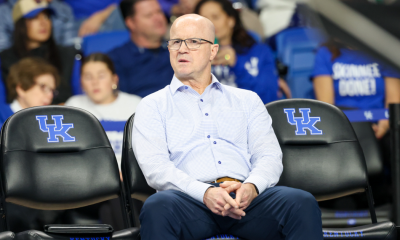
 Sports3 weeks ago
Sports3 weeks agoKentucky VB adds an All-American honorable mention, loses Brooke Bultema to portal
-

 Motorsports3 weeks ago
Motorsports3 weeks agoBangShift.com IHRA Acquires Historic Memphis Motorsports Park In Millington Tennessee. Big Race Weekend’s Planned For 2026!
-
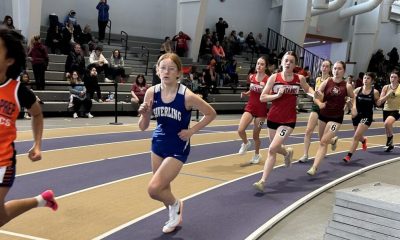
 Sports2 weeks ago
Sports2 weeks agoH.S. INDOOR TRACK & FIELD: GLOW region athletes face off at Nazareth University | Sports
-
NIL3 weeks ago
Fifty years after IU’s undefeated champs … a Rose Bowl
-
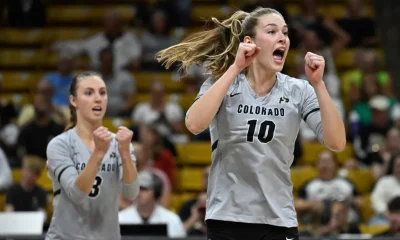
 Sports3 weeks ago
Sports3 weeks agoColorado volleyball poised to repeat success
-
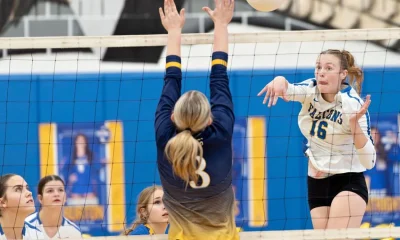
 Sports3 weeks ago
Sports3 weeks ago2025 Volleyball Player of the Year: Witherow makes big impact on Central program | Nvdaily
-

 Sports3 weeks ago
Sports3 weeks agoTexas A&M volleyball’s sweep of Kentucky attracts record viewership
-

 Motorsports3 weeks ago
Motorsports3 weeks agoNJ Motorsports Park Announces 2026 Event Schedule
-
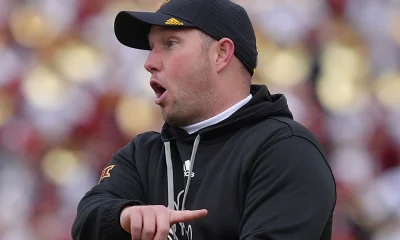
 NIL3 weeks ago
NIL3 weeks agoNIL Funds Are at Top of Arizona State’s Christmas Wishlist


































